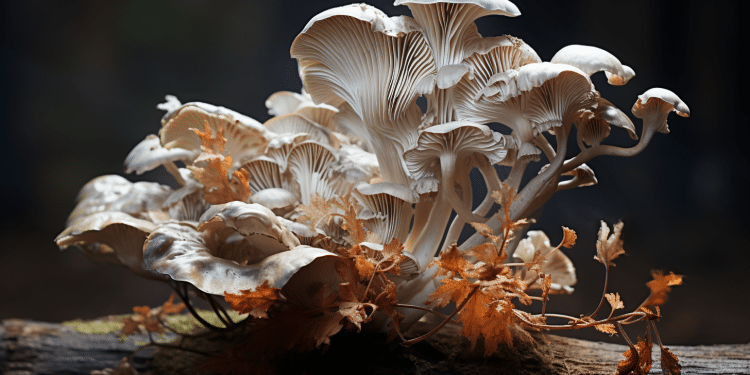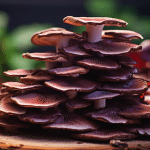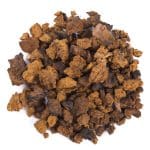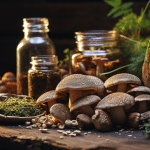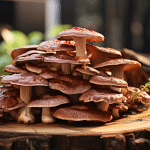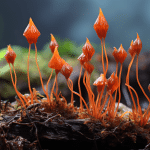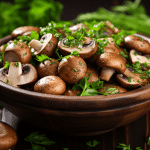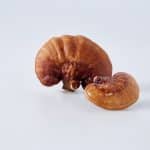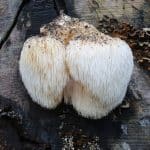Maitake, also known as the “hen of the woods mushroom” has emerged as a well-known species of edible mushroom known for its potent health-supporting properties. Its purported benefits have made the species one of the most popular mushroom species to grow for supplements.
But, you may wonder; Where does Maitake come from? Why is this species so special? This article will look at the historic usage of Maitake (hen-of-the-woods), its numerous benefits, and how you can include it in your everyday health regimen.
History of Maitake (Hen-of-the-Woods)
Grifola frondosa, also known as muscaria, is a species of edible mushroom that originates from China, Northeastern Japan, and North America. In the wild, maitakes are found on the forest floor near the base of oak, maple, or elm trees, but are grown modern day in enclosed spaces. While many stories vary about how maitake got its “dancing mushroom” name, many sources state that maitake is a rare, highly prized species sought out by many Japanese medicine practitioners due to its potent medicinal properties.
When found growing on forest floors, all would dance and cheer their incredible find. This species is also easily recognized by the overlapped, chicken-like plumage, also making this species known as “hen of the woods”.
Maitake gained popularity as a medicinal mushroom due to its potent immune-supportive abilities as well as it is endocrine-boosting benefits. This is attributed to the number of beta-glucans and antioxidants found in this species. When fully grown, Maitakes can reach 100 pounds in weight, making them one of the largest mushroom species. Another feature of the maitake to like is that it is a mild, polypore mushroom; its texture makes it easier to prepare. Whether you are cooking the mushroom into your meals or processing it to powdered or extracted form, maitake is a species that offers many benefits that can support your health and wellbeing.
Maitake (Hen-of-the-Woods) Nutritional Info
Much like many other mushrooms, Maitakes (hen-of-the-woods) are low in calories and high in protein. It makes an excellent addition to any dish because of its numerous health-promoting nutritional properties.
Beta-Glucan: Beta-glucans are polysaccharides found naturally within the fungal cell walls of many functional mushrooms, including Maitake. Beta-glucans help to activate and strengthen your immune system, providing support to your bodys natural functions.
Bioactive compounds: Maitake is made of an array of beneficial bioactive compounds, including Niacin, Riboflavin, and Vitamin D.
Niacin is a form of vitamin B3 which is necessary for supporting healthy cholesterol levels. Riboflavin is vitamin B2 and plays a major role in breaking down carbohydrates, proteins, and fats to help support energy production in the body. Maitake is known for its high Vitamin D content, which offers a number of benefits to support immune, heart, and bone health. The content of vitamin D found in maitake will vary depending on the location of where the species is grown.
Phosphorus: Phosphorus is a mineral found in bones and teeth, which is useful for maintaining, growing, and healing cells, tissues, and it also helps to form adenosine triphosphate (ATP), the molecule that the body uses for energy storage.
Potassium: Maitake offers an excellent source of potassium, a mineral that supports nerve and kidney function, heart health, and blood sugar levels. The nutrients found in a serving of maitake are abundant, but you may be wondering whether the species may provide similar benefits if grown indoors. Here’s more of the risks of wild grown mushrooms.
Risks of Wild Grown Maitake (Hen-of-the-Woods) Mushroom
Maitake is completely safe for consumption if grown in an open field, however, different variables may impact each species of mushroom grown in the wild. Temperature and light changes can greatly impact a mushrooms mycelium growth. To produce prolifically, mushrooms need to be grown in consistent temperatures (specific to species), which may not be predictable in the wild.
While we all enjoy mushrooms, the creatures of the wild also enjoy them. Insects primarily partake of eating mushrooms, risking taking nutritional factors with them.
Not to mention the possible diseases carried by insects and other animals which could contaminate mushrooms. Mushrooms also take in and accumulate many nutrients from their surroundings. One study found that when some species of mushrooms grown in an environmentally contaminated open-air ecosystem were examined, results showed high concentrations of the metals found in mushrooms. Environmental factors affecting mushrooms may be toxic for those consuming them, causing severe health complications.
The Pros of Indoor-Grown Maitake
While it was once grown only in the wild, Maitake is now often grown in houses. This method offers a safer, reliable method of producing a nutrient-dense, safe-to-eat food. When grown indoors, the growing process can be carefully monitored and is easier to keep under constant temperatures and environmental factors that are free from any toxins or threats typically found in the wild. Indoor-grown mushrooms may also undergo an extensive testing process to make sure that mushrooms are tested by a third-party, and are insect-free.
The Ideal Growth Process
The brands we feature on our site are committed to excellence in the areas of product quality and food safety in each and every stage of our growing process. Our Certified Organic Mushrooms are grown in a controlled, clean, CGMP (certified Good Manufacturing Practices) facility. This process allows us mushrooms to be monitored by mycology experts, to ensure a safe growing experience, free of toxins, bugs, and environmental pesticides. We use filtered air and water, as well as clean organic oats for the growing media. Because a lot of mushrooms grow on wood in the wild, the oats are left whole with their shells, so that the mushrooms have something challenging to decompose.
By doing this, the mushrooms expel more enzymatic activity, which results in a wider range of nutrients, which are protected in our controlled, indoor environments. After growing, our mushrooms are harvested and then heated to dehydrate into a whole food. The dried mushrooms are then ground down to powder, creating an easy way to include the species of mushrooms in your routine.
After the mushroom has gone through this whole process and is milled into a powder or capsule, it is sent out for third-party testing to ensure quality. This is where all mushroom supplements are tested for heavy metals and other contaminants, in order to comply with industry standards and beyond. After careful testing, our mushroom supplements are then ready to go for consumers, and we offer several blends of powdered mushrooms, including Maitake.
A maitake mushroom powder blend may provide support in healthy blood sugar levels, healthy weight management, and healthy digestion. This amazing blend is also a great support to your immune system.
When you factor in the long history of Maitake Mushrooms (hen-of-the-woods) and the immense benefits they provide, Maitakes are a natural fit in your diet. And, it’s simple, add a teaspoon of our organic maitake powder blend daily in coffee, smoothies, or a recipe of your choice, and enjoy its incredible benefits.
